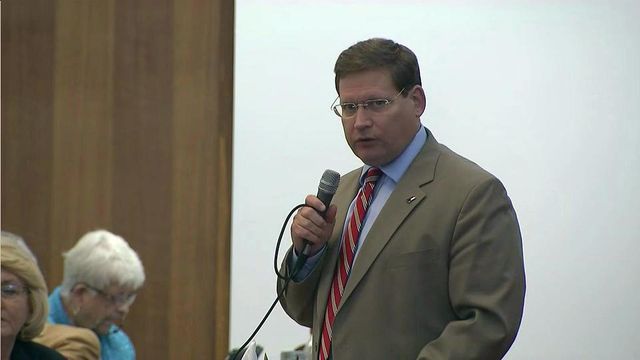House, Senate agree to another budget extension
State House and Senate lawmakers voted Wednesday to give themselves a second budget deadline extension, this time till Aug. 31.
Posted — UpdatedThere was no debate over the extension in the House, where Senior Budget Chairman Rep, Nelson Dollar, R-Wake, expressed optimism that that would be enough time.
"We are extending out a couple more weeks in order for our budget conferees to continue to work on their project – the process – and hopefully get to a successful conclusion," Dollar said.
The budget year started July 1, but lawmakers agreed to a 45-day extension in late June, giving them until midnight Friday to reach a budget deal.
Yet, House and Senate negotiators remain far apart on how much to spend, where to spend it and other issues, all of which have stalled any deal. Senators last week agreed to remove two large policy issues from the negotiations – Medicaid reform and an economic development package, both of which passed separately in the Senate this week – but dozens of policy and spending differences remain.
"We're getting closer, but we're not there yet," said Sen. Harry Brown, R-Onslow, the Senate's chief budget writer, told colleagues Wednesday.
That assurance didn't satisfy Sen. Tom Apodaca, R-Henderson, who said the ongoing delay in adopting a final budget is pinching school districts statewide, which will start classes in the next two weeks.
"It's time to get down and get this done," Apodaca said. "Enough is enough."
Sen. Jeff Jackson, D-Mecklenburg, agreed, saying some districts are laying off teaching assistants and making other cuts in anticipation of less state money.
"Our inaction has created instability across the state," Jackson said.
But he pulled back from Apodaca's push to reject the continuing resolution, saying shutting down state government isn't the answer.
"The worst-case scenario is going from confusion to catastrophe," he said. "This is what the state expects from (Washington) D.C., not from us."
Sen. Jerry Tillman, R-Randolph, said he would "hold my nose to vote for" the temporary spending, but there is no other choice, seeing that the General Assembly wouldn't meet the Friday deadline.
"We've got to have a plan to get this thing finished," Tillman said.
Asked after session about the seemingly intractable delay, Brown blamed it on a surprising cause: too much money.
"We have had to deal with budgets that were really tight, shortfalls, just trying to find places to balance a budget. This was the first time we actually had a surplus. And how you spend that – there’s obviously differences between the House and the Senate," Brown said. "I think it just creates a situation where our differences were bigger than ever before, so it just takes longer to come together."
House leaders and Gov. Pat McCrory have blamed the delay on the hundreds of pages of policy proposals Senate leaders included in their budget, but Brown dismissed that. "Sometimes you have to put things in the budget to get attention to it. That was our thought. I think the House was saying that it was an impediment, so we pulled it out."
Meantime, Sen. Minority Leader Dan Blue, D-Wake, chided budget negotiators for not including school funding provisions in the continuing resolution, given that most schools will begin their new school year before the August 31st deadline.
"It’s crazy to keep extending this thing without acknowledging that schools are opening. There needs to be some certainty in how we pay teachers, and whether we’re going to have teacher assistants in classes across the state. They’re things that are easily fixed. All you've got to do is reach a consensus on those kinds of things and put it in the CR," Blue said after session.
Blue noted that in 2002, the last time the budget was later than this year, then-majority Democrats did add such language to their continuing resolutions. Not to do so, he said, is "irresponsible."
After a 113-2 vote in the House and a 33-9 vote in the Senate, the continuing resolution now goes to Gov. Pat McCrory.
• Credits
Copyright 2024 by Capitol Broadcasting Company. All rights reserved. This material may not be published, broadcast, rewritten or redistributed.






